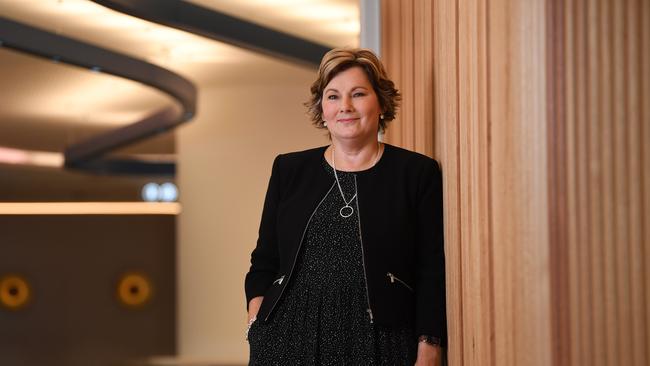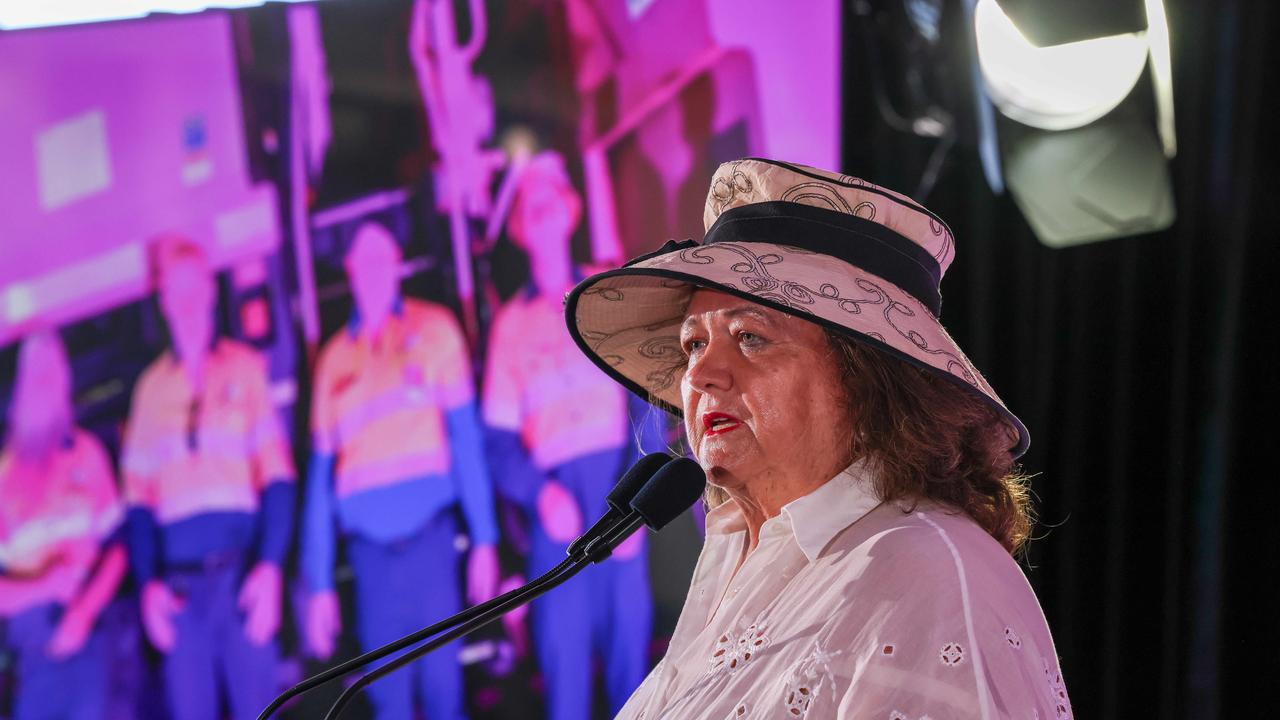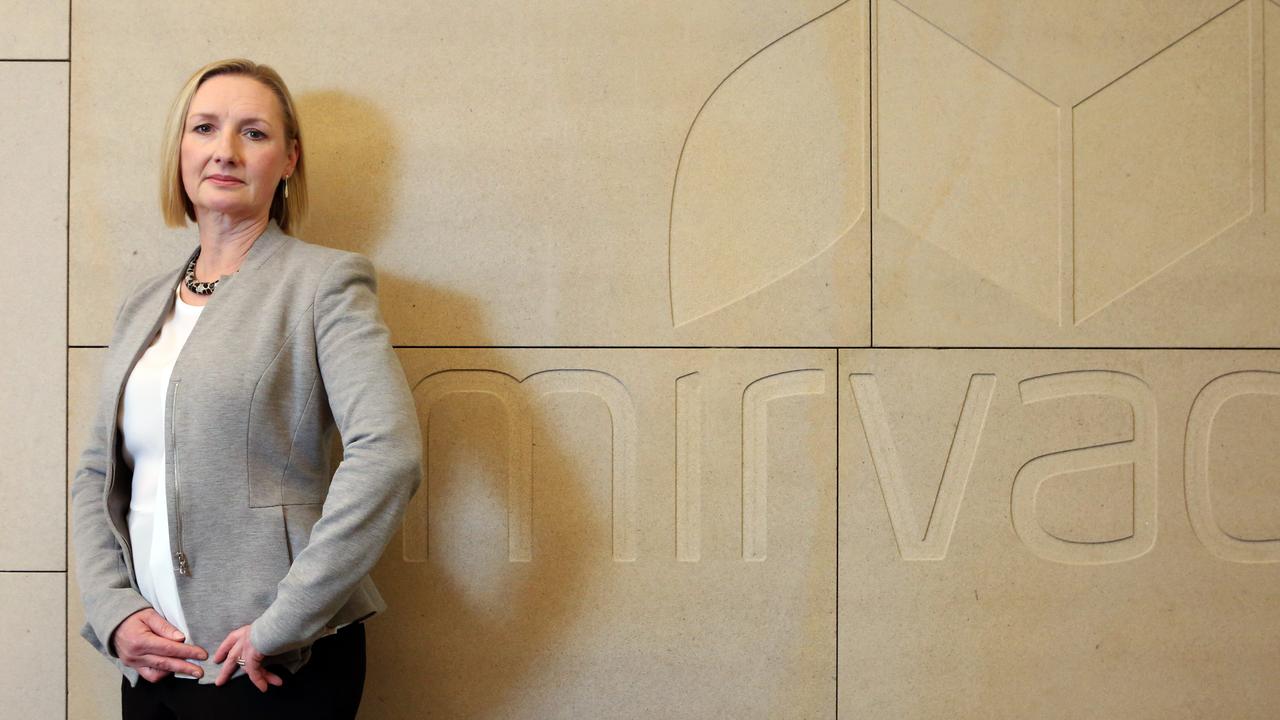Meet Sue van der Merwe, the former ’stopgap’ who became the $10bn Tabcorp lottery boss
Sue van der Merwe bought her first lottery ticket as research for a job interview. Now she is boss of the $10bn Tabcorp lotteries division set to list on the ASX.

Sue van der Merwe is about to take the helm of what could be a $10bn ASX-listed powerhouse, 30 years after starting in the lottery industry as a “stopgap” before finding a proper job in marketing.
Van der Merwe is managing director of Tabcorp’s Lotteries and Keno division, which by next June will be spun out of the wagering giant to form a stand-alone company that should quickly become a market darling.
It will also elevate van der Merwe to the status of one of Australia’s most prominent and powerful female executives.
Investors have campaigned for more than a year for Tabcorp to separate the strong lotteries business from its struggling wagering arm, and had their wishes granted when Tabcorp chairman Steven Gregg formally announced the demerger in July.
Van der Merwe has worked her way up through the executive ranks and gained about eight promotions since starting as a brand manager of what was then the Queensland Lottery Gold Casket in 1990, playing a significant role in a string of customer innovations, brand launches and internal and external digitisation of business that has one in three Australians buying a lottery ticket each week.
By mid next year she will lead a yet-to-be-named ASX-listed company that, based on an 18-20 times earning multiple applied to steady growth infrastructure-style stocks could be worth $9.5bn-$10.8bn.
“I think it will be a very exciting chapter for the business,” van der Merwe tells The Weekend Australian in her first major interview. “I feel very passionate about this business, what it stands for and what it does, and I’m excited to be taking it into its next chapter. We’ve got a great team, and will be taking the best of Tabcorp in terms of governance systems, processes, but also setting it up almost for a fresh start. It’s a new culture.”
All of which is a far cry from when she answered a job ad in 1990 after moving to the Gold Coast from South Africa and had to dash to a newsagency to figure out what buying a lottery ticket was all about.
Van der Merwe grew up in coastal Durban, but after studying marketing and economics worked in brand marketing roles for local fast-moving consumer goods (FMCG) companies, before following her mother and stepfather to Queensland.
“I wanted to stay in consumer goods and I saw this ad for this marketing role in a company with consumer something in the way it was referenced, so I applied,” Van der Merwe says. “Then the recruitment agent told me it was a lottery business. I said ‘what’s a lottery?’ and did a quick educational exercise down at the local newsagent and bought some tickets.
“I thought maybe I’ll do this until I can get a real FMCG marketing role. But then I started to really just feel and see what an amazing industry this is.”
Van der Merwe began as a brand manager, then had marketing sales and general manager roles at Golden Casket, which was sold to the then Tattersall’s for $530m in 2007. It later became Tatts Group and van der Merwe continued climbing the ranks to eventually become lotteries chief operating officer and then her present role when Tatts and Tabcorp merged in a $11bn deal in 2017.
The lotteries business has grown markedly in that time, and van der Merwe remembers Golden Casket’s aspiration to run lotteries all around Australia. Today, her business runs seven of eight jurisdictions and had pre-tax profits of $516m in 2021 – $300m more than Tabcorp’s wagering division.
Key to the growth, van der Merwe says, has been the expansion of the lottery games the business offers, the focus on branding and customer preferences and the adoption of digital practices inside and outside the business.
“When I started there was only one Queensland lottery,” she says. “We had the equivalent of what is now lucky lotteries and lottery, raffle-type ticket and we had Saturday Lotto. I was part of launching Oz Lotto and then Powerball.
“It was about positioning the products like a consumer goods company would position them in terms of strong brands, marketing, support, customer focus, driving the development of the channel. You market this product and you manage the product and develop the product and really, in the end the delivery of the product is the win. That’s what we are doing, we are selling that dream.”
A customer relationship management program and loyalty database has been part of the business since the 1990s, she says – “I think we were the only lottery in the world to do something like that at the time and that’s very much the consumer marketing thinking coming to the fore” – and that has morphed into more personalised offers for customers who buy lottery tickets in retail stores or play online.
“Things like being able to buy a lottery ticket in a retailer and then being able to have that ticket visible on your digital device,” she says. “Then if you win prizes you can use that money if you’re sitting at home to play online or use it in store. There’s swiping your loyalty card at a store and the operator being able to offer you customised preferences. Those are the things we are implementing.”
The business’s overall brand The Lott has a 79 per cent customer brand recognition rate, van der Merwe says, and lottery tickets generally have wide appeal and acceptability across all demographics with games tailored to different age groups and markets.
“Our model is about having a large number of people playing, spending a relatively small amount of money, $12-15 sort of average when people play, for the chance to win a large amount.”
Van der Merwe says she has also been careful for the business not to focus on the more glamorous and catch jackpots – Powerball’s jackpot was worth $80m this week to a Western Australian winner – so as not to damage the Lotto games that roll out during that week that have a large loyalty base. About half the business is split between the big jackpot games like Powerball and the remainder. Overall, about 85 per cent of revenue is derived in lotteries and 15 per cent in the venue-based keno business.
The odds of winning the lottery may be almost greater than becoming a female CEO at a large ASX-listed company, though. While van der Merwe says she has not given the topic much thought and has never felt held back herself, she recognises she is a role model for her two adult daughters Chelsea and Lauren and aspirational women more widely.
Her father was successful in business and van der Merwe was never treated any differently to her three brothers. All were told to “do our best, work hard, head down and don’t expect to be handed anything on a silver platter”.
That, she says, was instrumental in her thinking. But then van der Merwe remembers her first executive meeting aged 30.
“One day when I looked around the boardroom table and thought, I really am the only female,” she says. “It’s not something that is top of mind for me but I do recognise it is important because not everyone’s been as fortunate as I have been in not feeling like I was held back at any point.
“And so I do want to make sure that I create the same sort of level playing field for other women in the workforce, because no one should feel like they don’t have the same opportunities as the next person.
“It really is about hard work and commitment and doing your best and everyone working in the right way with the right sort of approach and ethics.”




To join the conversation, please log in. Don't have an account? Register
Join the conversation, you are commenting as Logout